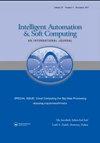基于数据驱动模型的热压锻件热处理工艺优化
IF 2
4区 计算机科学
Q2 Computer Science
引用次数: 0
摘要
热压锻造工厂的热处理作业调度涉及到为给定的炉形成多个工件的批次,确定每个批次的加热开始时间,并整理加热工件的冷却顺序。其中,成批尤其困难,因为必须满足各种约束条件。本文提出了一种基于进化算法的优化方法,在满足批量约束条件下,以最小的能量成本寻找生产率最高的热处理方案。我们的方法将候选解决方案编码为热处理作业的排列,并对其进行解码,以便将作业分组成满足所有约束的批次。每个候选计划通过模拟加热和冷却过程来评估,使用从历史过程数据中学习到的加工时间和能源消耗成本模型。仿真实验表明,与人类专家构建的调度相比,采用该方法构建的调度具有更高的生产率和更低的能量成本。本文章由计算机程序翻译,如有差异,请以英文原文为准。
Optimization of Heat Treatment Scheduling for Hot Press Forging Using Data-Driven Models
Scheduling heat treatment jobs in a hot press forging factory involves forming batches of multiple workpieces for the given furnaces, determining the start time of heating each batch, and sorting out the order of cooling the heated workpieces. Among these, forming batches is particularly difficult because of the various constraints that must be satisfied. This paper proposes an optimization method based on an evolutionary algorithm to search for a heat treatment schedule of maximum productivity with minimum energy cost, satisfying various constraints imposed on the batches. Our method encodes a candidate solution as a permutation of heat treatment jobs and decodes it such that the jobs are grouped into batches satisfying all constraints. Each candidate schedule is evaluated by simulating the heating and cooling processes using cost models for processing time and energy consumption, which are learned from historical process data. Simulation experiments reveal that the schedules built using the proposed method achieve higher productivity with lower energy costs than those built by human experts.
求助全文
通过发布文献求助,成功后即可免费获取论文全文。
去求助
来源期刊

Intelligent Automation and Soft Computing
工程技术-计算机:人工智能
CiteScore
3.50
自引率
10.00%
发文量
429
审稿时长
10.8 months
期刊介绍:
An International Journal seeks to provide a common forum for the dissemination of accurate results about the world of intelligent automation, artificial intelligence, computer science, control, intelligent data science, modeling and systems engineering. It is intended that the articles published in the journal will encompass both the short and the long term effects of soft computing and other related fields such as robotics, control, computer, vision, speech recognition, pattern recognition, data mining, big data, data analytics, machine intelligence, cyber security and deep learning. It further hopes it will address the existing and emerging relationships between automation, systems engineering, system of systems engineering and soft computing. The journal will publish original and survey papers on artificial intelligence, intelligent automation and computer engineering with an emphasis on current and potential applications of soft computing. It will have a broad interest in all engineering disciplines, computer science, and related technological fields such as medicine, biology operations research, technology management, agriculture and information technology.
 求助内容:
求助内容: 应助结果提醒方式:
应助结果提醒方式:


